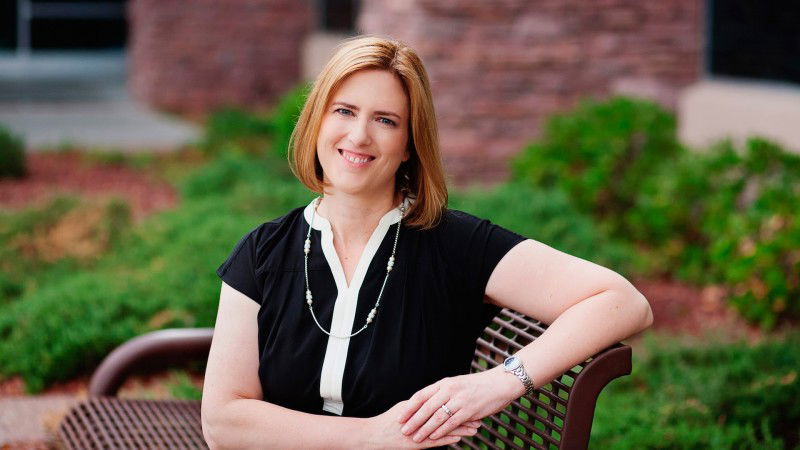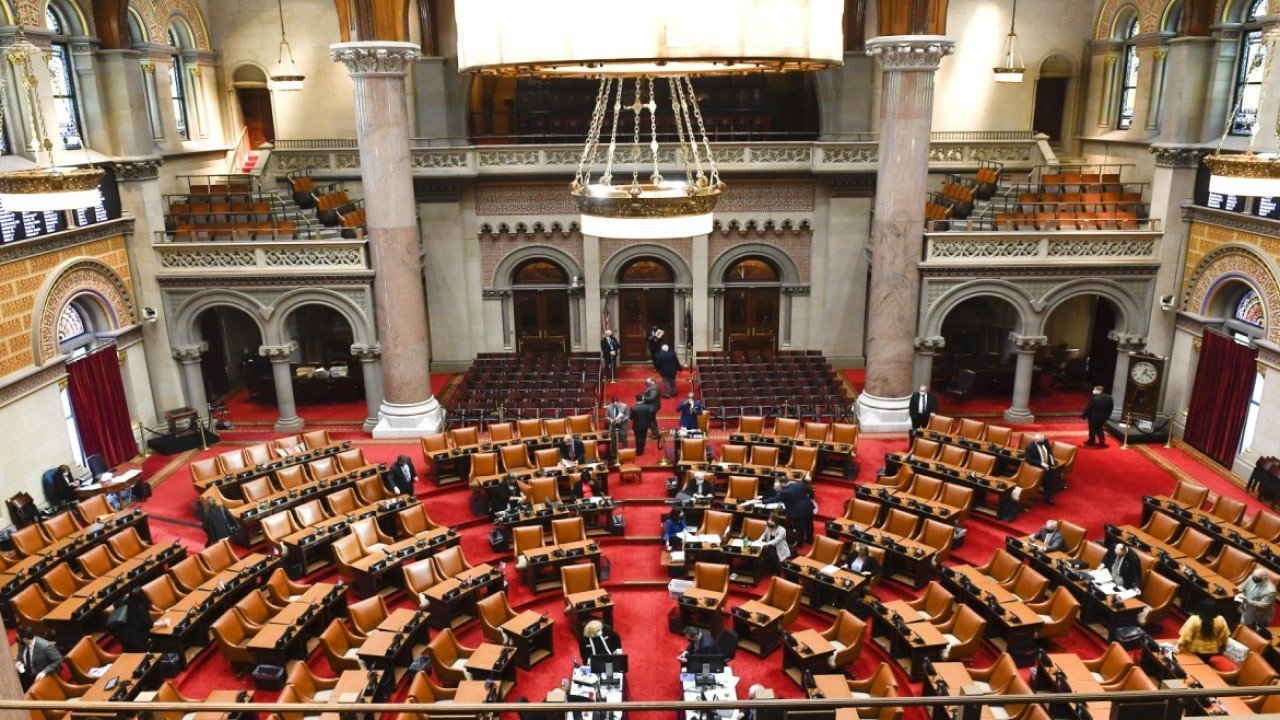"Significant taxes and any additional fees only serve to facilitate offshore illegal gambling operations"

Could you share your overall assessment of the recent 17th edition of International Conference on Gambling & Risk Taking you participated in, the key learnings and conclusions you found during the event? What practical effects do you consider it may have on the debate over US sports betting regulations?
Attendees were treated to a treasure trove of information. Particular attention was given to the Japanese market and how it is continuing to develop. Tourism, problem gambling, and U.S. sports betting were also topics of interest. The National Collegiate Athletic Association sent a panel of their experts to discuss issues related to U.S. sports betting and collegiate athletics. The panel on the 2019 Department of Justice Opinion of the Federal Wire Act and What it Means for Nevada, the Nation and Non-U.S. Operators was particularly good and featured experts from UNLV’s Boyd School of Law – Professors Cabot, Roberts and Gemignani.
During the same week, Massachusetts held two hearings about sports betting regulations, where land-based casinos asked exclusivity to take bets at physical sites and that mobile betting should be reserved for themselves and a limited number of daily fantasy operators through a partnership. How do you think land-based and online sports wagering companies and market positions should converge in order to optimize the business for all stakeholders?
Nevada currently requires patrons wanting to bet on sports to open their wagering account at a land-based casino, with certain exceptions, before a wager can be placed. That requirement requires sportsbook operators to physically interact with their customers. Through in-person sign up, casinos in Nevada comply with KYC (know your customer) and other financial requirements. New Jersey and other jurisdictions have taken a different approach by allowing for online sports wagering account sign-up. So far, New Jersey appears to have a process in place with the right kind of integrity protocols. It will be interesting to see how Tennessee decides to roll out its mobile wagering. More important than the debate between online versus land-based account sign-up and the how mobile wagering is delivered are the integrity protections that MUST be put into place by a jurisdiction. Integrity protocols ensure that there is public confidence in sports betting and that it is free from criminal and corruptive elements. As more US jurisdictions offer legalized sports betting, it will be critical that each jurisdiction has a robust regulatory scheme with the appropriate integrity provisions put into place.
Richard Auxier, a research associate at the Urban-Brookings Tax Policy Center, found that only half of US sports betting states are in line with tax projections, due to limited online gambling options and low consumer awareness (56%). Would you agree with those two factors affecting revenues? Do you consider that setting the rates too high may encourage illegal betting and thus depress state tax and licensed companies’ revenue?
The challenge with estimating tax projections for legalized sports betting markets is that the data just doesn’t exist. As the one-year anniversary of legal sports betting for early adoption jurisdictions approaches, there will be more comprehensive data, for those particular jurisdictions, on which such projections can be based. It is imperative to understand the impact tax rates and fee structures have on a legalized regulated sports betting market as well as the illegal sports betting market. In the United States, jurisdictions that offer legalized sports wagering won’t simply be competing against other states with legalized sports betting. They will also be competing with offshore illegal operators and illegal operators within their own and other jurisdictions. Significant taxes and any additional fees, to the extent they are implemented, only serve to facilitate offshore illegal gambling operations by making legal betting products that much more expensive. A well-regulated and reasonably priced gaming market shifts betting away from the illegal market to the degree the legal market satisfies a given bettor. Keeping taxes low and eliminating fees helps ensure that legal betting products can be priced competitively with illegal market products.
““New Jersey appears to have a process in place with the right kind of integrity protocols. It will be interesting to see how Tennessee decides to roll out its mobile wagering
”
What is your stand regarding professional sports leagues asking for royalty fees?
If sports leagues are looking to monetize sports betting, there is nothing that prevents them from contracting with sports book operators directly. Some league and sports book operator agreements include: MGM and the NBA, New York Jets, the NHL and MLB; William Hill announced a sponsorship agreement with the Las Vegas Golden Knights and the New Jersey Devils; Caesars signed a deal with the Philadelphia 76ers, the New Jersey Devils, and the NFL. Gaming company, 888, scooped up the first on-line gaming deal with NFL via the New York Jets.
Do you think a federal regulation could be positive for some aspects of sports betting, such as the fight against illegal market? Based on Nevada’s experience, what considerations and safeguards should states about to legislate take to make the best and tailored framework in terms of problem gambling and sports integrity? Massachusetts is also discussing whether allowing collegiate, amateur games, and high school sports in betting. Do you think there are safeguards that if included in the regulations could include those segments successfully, with no further risks as compared to professional sports?
States are in the best position to regulate sports betting within their borders. It is a responsibility that states with legalized sports betting have taken seriously. The federal government has “historically played no role in the discharge of the traditional regulatory functions of licensing, enforcement, and audit.” “Congress has no real expertise in establishing gaming regulatory regimes.” It would take several years to establish a federal regulatory model. In the meantime, several states have already begun to offer legal sports betting. A federal system of regulation would be an additional layer of regulation, only add unnecessary cost, delay the licensing process, increase taxation, and create additional complications. By extension, the price of bets would increase putting legal regulated sports betting at a disadvantage to illegal sports betting. I think that allowing wagering on amateur games and high school sports would be damaging to young and developing athletes and to the sports programs as well.
““If sports leagues are looking to monetize sports betting, there is nothing that prevents them from contracting with sports book operators directly
”
Fox Corporation, Walt Disney - ESPN, Sinclair and fuboTV have recently taken steps towards sports betting business. What’s your personal view on this trend, and what challenges do you expect this could open for the industry, the audiences and further regulations as well?
So far it appears that the involvement in sports betting by the media companies you reference is limited to building media studios and integrating betting odds into their programming. Neither of those activities requires the involvement of gaming regulators. Adam Kaplan recently said that FanDuel wants to “truly changing the way people watch live sports.” Betting odds and specialized gambling content will always appeal to certain demographics of viewers and the subscription services that are being created will in theory satiate that desire. Increased viewership and fan engagement can be a good thing. After controversial calls were made during the Saints-Chargers NFC Championship Game for a spot in the Super Bowl and Game 7 of the Knights v. Sharks in the run for the Stanley Cup, both sports organizations are looking to possible rule changes.
““Allowing wagering on amateur games and high school sports would be damaging to young and developing athletes and to the sports programs as well
”
New Hampshire Lottery says the DoJ’s opinion is unenforceable since it doesn’t make sense in the context of PASPA’s repeal, and a District Court said it only applies to sports betting. What do you take from these stands, and what are your prospects for this federal prohibition? Are current technologies, policies and controls enough to ban online betting from non-regulated states?
It remains to be seen, per the DoJ’s Memo of June 12, 2019, it is still evaluating its options until December 31, 2019 or 60 days after entry of final judgment in the New Hampshire Litigation. I believe that geofencing technologies and regulatory controls are robust enough to prevent consumers living outside the state boundaries of jurisdictions with legalized sports betting from placing wagers if properly deployed.
What are your expectations for the UNLV-Caesars' Black Fire Innovation hub? What contributions do you think it will make for the global gaming industry, and particularly sports gambling?
Informed by research and a study of new trends and innovations, this partnership promises to be an industry disrupter as industry leaders and students work together to reimagine how gaming, hospitality and entertainment interact. One of the reasons UNLV-Caesars’ Black Fire Innovation hub is so appealing is that it has been specifically designed to bring together various sectors of the gaming industry under one roof. Now there will be a dedicated venue where technology partners, students, and the community can share creative ideas and entrepreneurship nurtured. New products and processes are sure to come as gaming, hospitality and entertainment intersect in creative ways as the Innovation hub features a commercial kitchen, casino floor, hotel rooms, eSports arena, a VR lab and sportsbook as well as classrooms and presentation facilities.
““Black Fire Innovation has been specifically designed to bring together various sectors of the gaming industry under one roof
”
Nevada’s Assembly Bill 221 expands the state’s technology and manufacturing workforce by giving those 18 to 20 years legal status as a “gaming employee”. What practical changes do you see this could bring, and what effects could this have, for instance, in projects like Black Fire, startups or gaming companies' development in general?
Nevada Assembly Bill 221 is particularly timely as the gaming technology sector continues to grow. According to AGEM, supplier companies operating out of Nevada report an annual direct revenue of $11.7 billion. The impact of this legislation will likely be felt worldwide as manufacturers based in Nevada export both hard and software to every regulated gaming jurisdiction in the world. This new legislation will help provide education to workforce pathways for Nevada’s brightest students in computer science, graphic art, mathematics and other disciplines creating conduits for innovative game design. For the first time, gaming manufacturers in Nevada will have the ability to offer internships to college students. As the partnerships between educational institutions and gaming companies continue to evolve, it will be interesting to watch as new products emerge.


















































